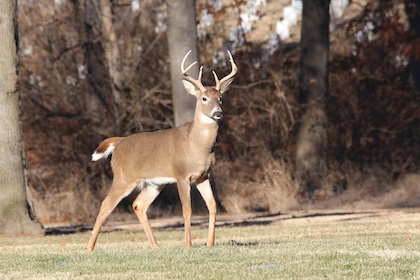Reinventing the Hunt: South Carolina’s New Digital Tagging Regulations for Deer Coming in 2024
November 3, 2023In South Carolina, a significant change is on the horizon for hunters as they transition from traditional physical tagging to electronic tagging for deer. This change set to take effect July 2024, is the result of a recent law that also mandates electronic tagging for turkeys through the state’s Department of Natural Resources app. While this shift is welcomed by some in the hunting community, others find it challenging to adapt to the new process. The change is driven by the need to ensure the sustainable management of wildlife populations while maintaining compliance with hunting regulations.
Hunting regulations in South Carolina are designed to ensure the responsible and sustainable management of wildlife populations. The state’s hunters are subject to specific restrictions, including the number of animals they can hunt each season, varying based on the animal type and population size. Tagging and reporting kills are critical components of these regulations, as they help authorities monitor and enforce these limitations effectively. Currently, hunters physically attach plastic tags to the animals they harvest and register their kills at designated animal processing centers.
Digital Transformation: The Department of Natural Resources App
The South Carolina Department of Natural Resources took a significant step towards digitizing the tagging process with the launch of the Go Outdoors South Carolina app in 2022. Initially developed as the agency’s new licensing and boat titling system, this versatile app now serves multiple purposes. It allows users to purchase hunting and fishing licenses, apply for lottery hunts, and register watercraft. While the app was initially used exclusively for tagging turkeys, it is now extended to include deer.
Support for Change and Concerns
The primary sponsor of the bill facilitating this transition, Edgefield Republican Rep. Bill Hixon, emphasized the importance of streamlining processes for effective wildlife management. According to Hixon, the primary goal is to maintain a healthy population of animals by managing their numbers. While the bill received widespread support, there are varying opinions within the hunting community. Older hunters may be less enthusiastic about the digital transition, possibly due to unfamiliarity with technology. In contrast, younger hunters have expressed their support for the idea.
Some concerns have emerged regarding potential issues like phones running out of battery or the lack of service in remote areas. Lawmakers have assured hunters that the process will be streamlined over the next year to ensure it is user-friendly and accessible to all. While this digital transition is currently limited to deer and turkeys, there is uncertainty about whether more bills will be introduced to address tagging regulations for other animals in the future. Lawmakers have mentioned that they will be considering hunting regulations concerning feral hogs and several other species.
Penalties for Non-Compliance
Starting in July 2024, hunters who fail to tag a deer correctly using the electronic system may face legal consequences. Non-compliance could result in a misdemeanor charge and fines of up to $25. This underscores the importance of adhering to the new tagging process and staying within the legal hunting limits.
South Carolina’s transition from traditional physical tagging to electronic tagging for deer and turkeys marks a significant step in the evolution of wildlife management and hunting regulations.
While some hunters embrace the change as a way to streamline the process and enhance population management, others have concerns about technology-related challenges. The state’s Department of Natural Resources is committed to addressing these concerns and ensuring that the new system is user-friendly and efficient. As hunters prepare for this digital transformation, the goal remains the same: to preserve and protect the state’s diverse wildlife populations for future generations.














